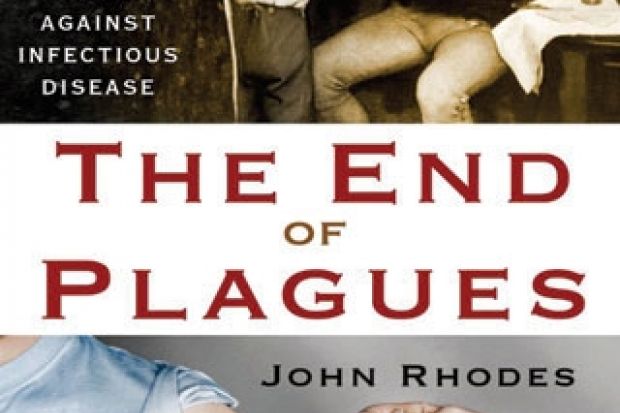“Obamacare” has divided the American people. Such is the opposition to the Affordable Care Act among some members of the Republican Party that the US federal government ground to a halt for 16 days in October. At its most basic level, Barack Obama’s vision is to bring to more US citizens the benefits of better healthcare by making health insurance mandatory through a variety of mechanisms. Those who oppose the legislation do so in part because they don’t like being told what to do. They prize their right to independence highly, more so than the right to healthcare that the citizens of other nations find so essential. According to the act’s opponents, the benefits of collective medical provision are less significant than its erosion of individual choice.
The health of the individual versus the health of the nation: there is perhaps no better example of this tension than the history of vaccination programmes. How much do we give up as individuals in order to gain the benefits of the herd immunity that such treatments can impart? How much pressure do we put on those who resist? Can we justify compulsion? These questions all make their appearance in the eminent immunologist John Rhodes’ optimistic history of vaccinations and their underlying science.
Before he tackles such thorny ethics in the here and now, Rhodes takes us back to Gloucestershire in the late 18th century, to Edward Jenner and cowpox, the milkmaid Sarah Nelmes and the little boy James Phipps. Phipps, whom Jenner treated with the pus from Nelmes’ cowpox blisters in an attempt to find a way to vaccinate against smallpox, must be one of the leading contenders for the most famous patient of all time. The irony is that Phipps was not sick, and that’s the rub in vaccination. It involves the deliberate exposure, by medical personnel, of the healthy to suitably prepared germs. There is always a risk, however slight, but for the most part the benefits are greater. Rhodes sets out very well the differences between individual reactions that cannot be foreseen and blunders.
Rhodes clearly admires Jenner and his account of Jenner’s work is kindly but determined. In an era in which histories of medicine typically have an anti-heroic cast, and when there are other contenders for Jenner’s crown as the father of immunology, Rhodes argues convincingly for his being given credit for the discovery. In a nice play on the rigours of modern peer review, he explains why Jenner resorted to self-publicity to get his message across and considers how this set him apart from the others who dabbled with cowpox.
Much of the book is taken up with the history of smallpox and polio. Rhodes uses both to good effect to explain how the vaccines work and how they were derived and applied. He recounts how the final push to eradicate smallpox was achieved not by blind mass vaccination, but by targeted surveillance-containment policies, and considers why polio remains a threat. He also looks briefly at vaccinations against tuberculosis and flu, HIV and malaria. All present a diverse range of immunological challenges, which have been only partially met. The science behind these limited successes makes for some of the best chapters in the book, which is especially impressive given the difficulty of making immunology accessible to the lay reader.
Rhodes knows that science and its application do not occur in a vacuum. He discusses the role of the media in creating positive and negative vaccination stories: the combined DTP (diphtheria, tetanus and pertussis) and MMR (measles, mumps and rubella) vaccines and the controversial (and later disproven) claims of their links to autism are handled well. War and displacement, distrust of outsiders or of Western science are the enemies of preventative medicine, too. Yet Rhodes remains wonderfully upbeat. If sometimes he seems a little too optimistic about the past, should we dent his enthusiasm for the future? Immunology and the countless deadly diseases it can prevent probably have need of it.
The End of Plagues: The Global Battle against Infectious Disease
By John Rhodes
Palgrave Macmillan, 256pp, £17.99
ISBN 97811378524
Published 22 October 2013
Register to continue
Why register?
- Registration is free and only takes a moment
- Once registered, you can read 3 articles a month
- Sign up for our newsletter
Subscribe
Or subscribe for unlimited access to:
- Unlimited access to news, views, insights & reviews
- Digital editions
- Digital access to THE’s university and college rankings analysis
Already registered or a current subscriber? Login





